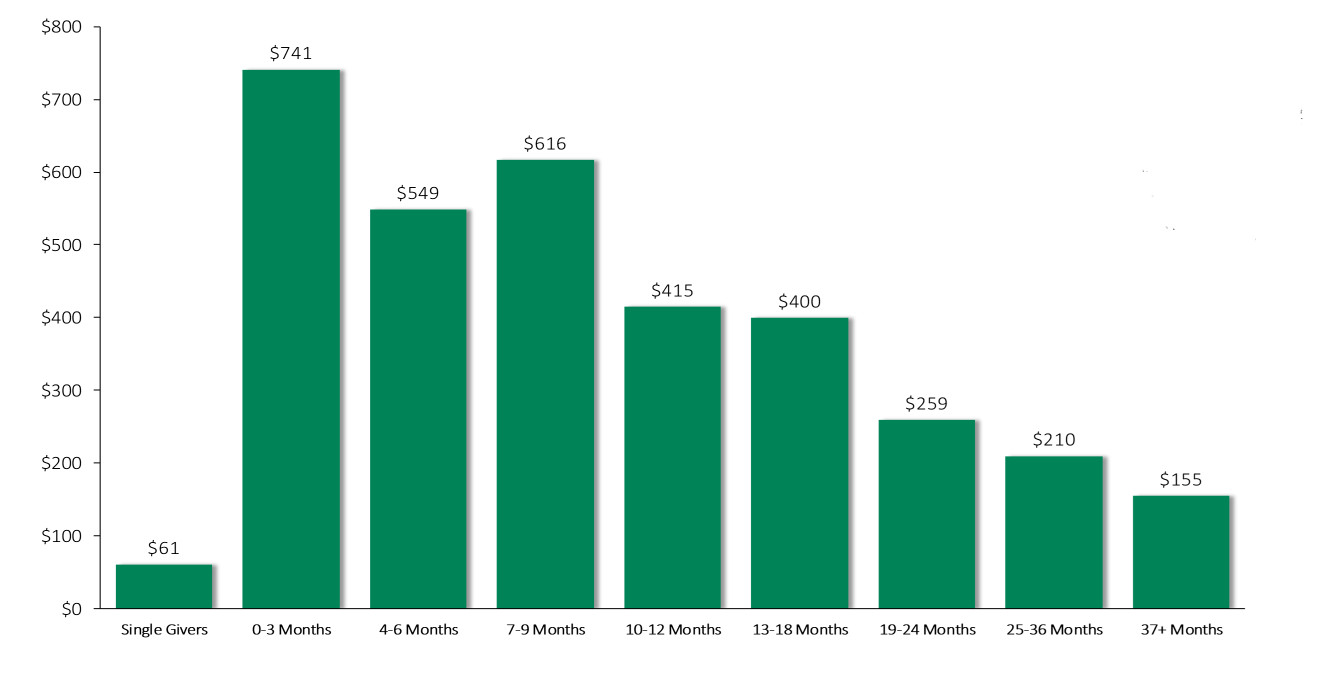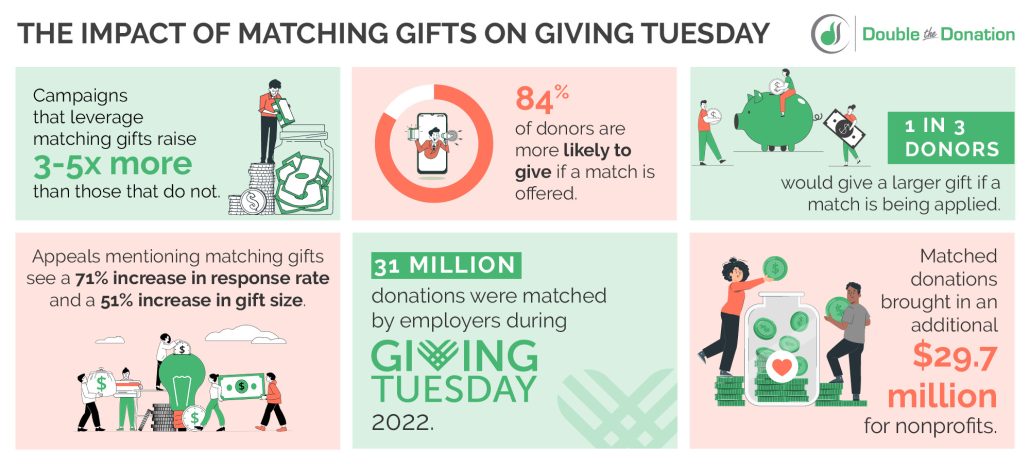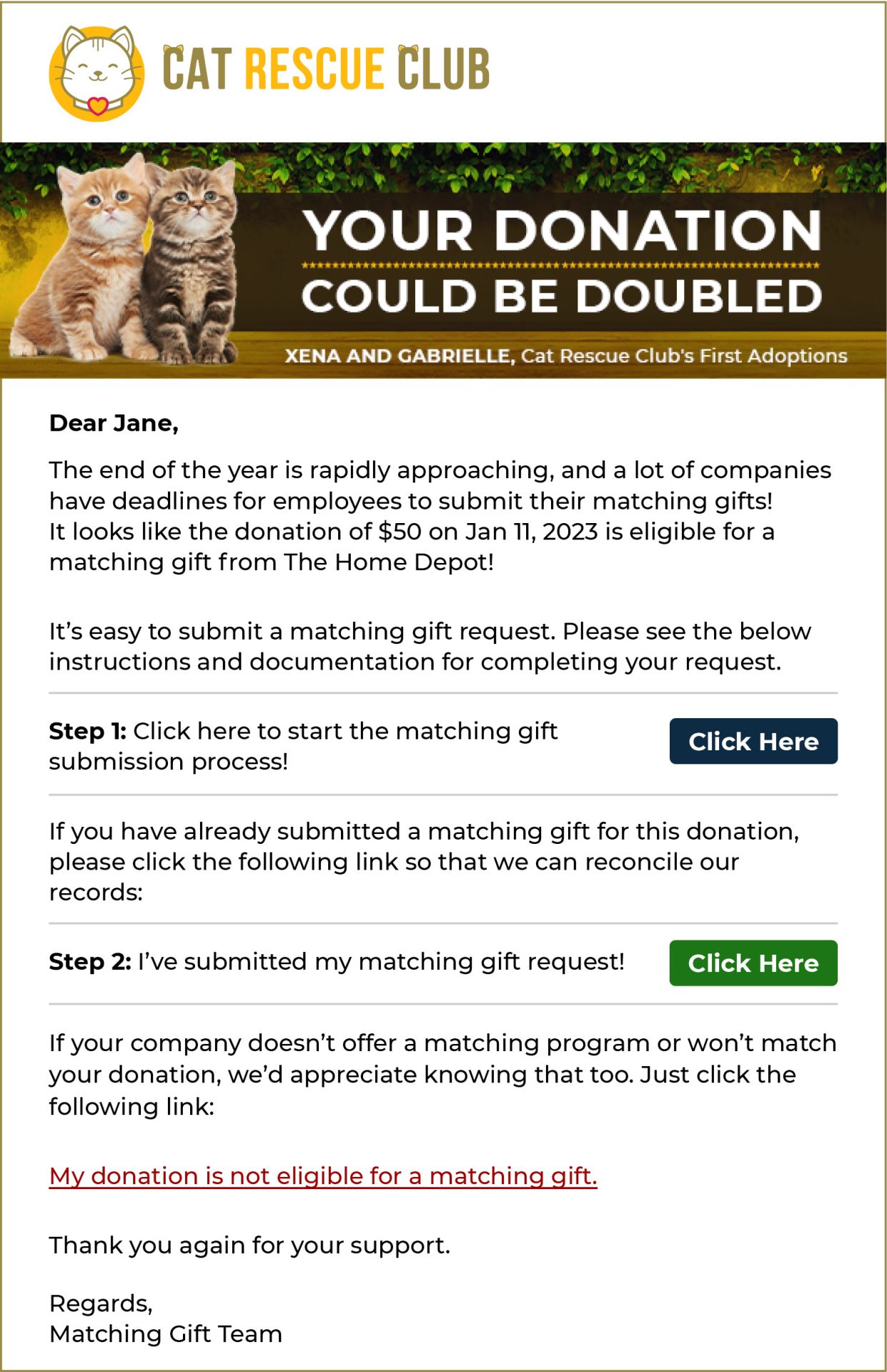This post co-authored by me and long-time friend and former colleague, Fundraising Economist Bill Jacobs of Analytical Ones.
One of most counterintuitive truths about fundraising is this: The more recently a donor gave, the more likely they are to give now.
It’s so hard to believe that many organizations “rest” donors from being asked for period of time after they give. They suppress contact for 60-90 days — sometimes as long as six months.
That’s an incredibly expensive practice. If you do that, you are deciding for donors that they won’t give. And you do that exactly during the time when they are most likely to give.
Want some proof? Here’s data on 99,425 donors. It shows their total giving over five years by the length of time that passes between their first-ever gift and their second gift.

That first column on the left — the stumpy little column representing a mere $61 total giving — is the donors who only gave that first time, and not again.
The next column, the one that’s 12 times taller, is the five-year average revenue from donors whose second gift came up to three months later than their first one.
It’s all downhill from there.
Those who gave soonest after their initial gift gave a lot more over time.
You could do this analysis on your own donors. It will look very much the same: The sooner the subsequent donation, the higher the long-term value.
If this organization had a “rest the donors for 90 days” policy, they would have forgone something approaching $10 million over five years ($741 times the 13,578 donors in the up-to-90-days group equals $10,061,298). If they have a six-month resting period, the lost revenue would be more like $13.8 million. (Some of that “missing” money would have migrated to the columns to the right, from donors who “survived” the rest and gave again anyway. But not a lot of it.
Don’t “rest” your donors!
They don’t need you to decide for them how long they wait before they give again. That’s their decision.
The rest-your-donors practice is based on the belief that giving is not a joy or a life-affirming act, but something difficult, even painful.
It isn’t. The numbers show us that.
Cross-posted at the Data Stories Blog.
#DATA #Rest #donors #fundraising #cost










